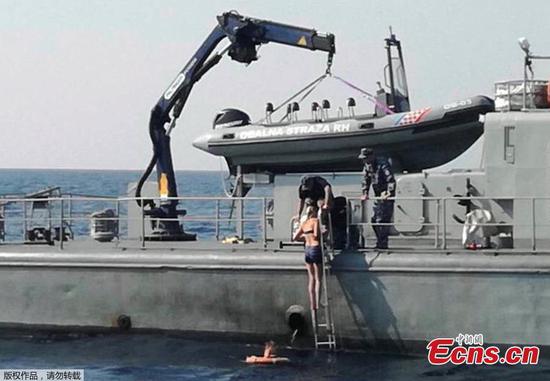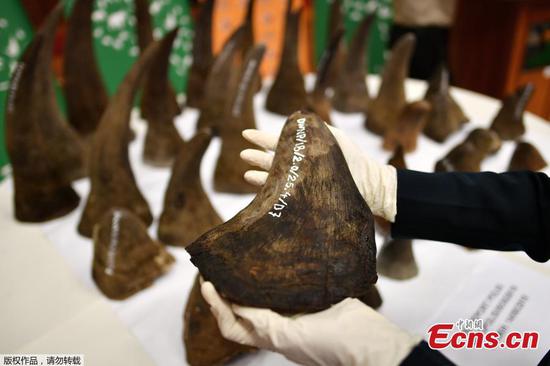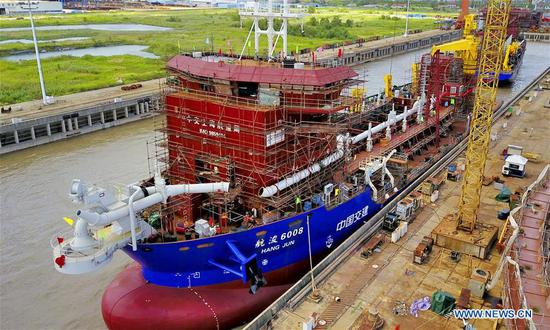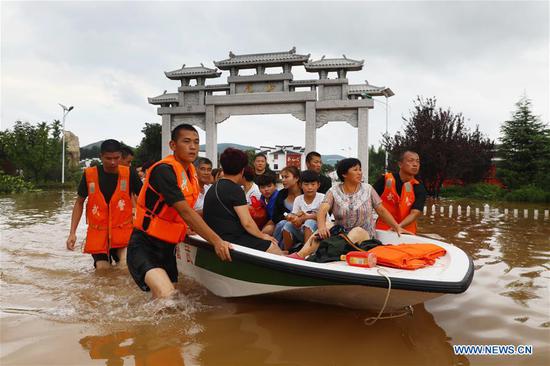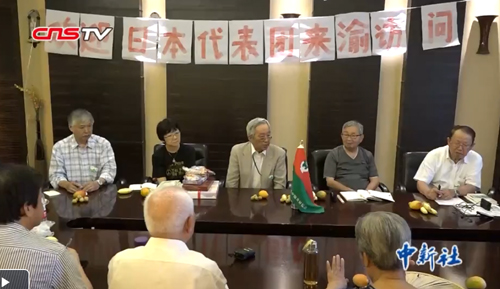Trade tensions weigh on shipments as operators seek cheaper alternatives
U.S. exports of liquefied natural gas to China are expected to continue their recent decline, as Chinese utilities seek alternative suppliers amid the Sino-U.S. trade dispute.
The Ministry of Commerce said it might impose a 25 percent tariff on U.S. LNG imports if U.S. President Donald Trump follows through on his recent threat to escalate trade tensions.
The potential tariff has driven many Chinese importers toward other suppliers, concerned that the tariffs, once implemented, could make U.S. LNG unaffordable in the near term.
"This would be a major blow for U.S. companies in the LNG sector, as many Chinese utilities have already indicated they wouldn't take U.S. cargoes for any new spot deals if the trade war continues," said Li Li, research director at energy consulting company ICIS China.
"China is making efforts to find other natural gas resources before winter, when gas demand is expected to surge, especially for heating," she said.
Several Chinese utilities told China Daily that the potential tariff introduction might deter spot procurement of U.S. volumes in the near term, as it could erase companies' margins and companies would be unable to absorb the costs in the event of strong domestic demand.
Tariff effect
According to S&P Global Platts Analytics data, China imported more than 1.88 million metric tons of U.S. LNG over the January-July period, compared with 1.61 million tons in 2017.
But, there has been a recent reversal, with China only receiving four shipments over June and July, compared with five in May alone, the data showed.
Figures from Reuters show that U.S. LNG sales to China already slumped from almost 400,000 tons in May to just 130,000 tons in July. Supplies from Australia, Malaysia, Indonesia, Russia and Papua New Guinea increased.
Platts reported earlier that Unipec, the trading arm of China Petroleum and Chemical Corp, resold a significant portion of its June-loading U.S. crude oil cargoes after Beijing announced it was considering the further tariffs in mid-June.
Wang Lu, Asia-Pacific oil and gas analyst at Bloomberg Intelligence, said the recent contract signed between Houston, Texas-based Cheniere Energy Inc and China National Petroleum Corp - the nation's largest oil and gas producer by annual output - might be suspended if the trade conflict continues. The deal involves purchasing approximately 1.2 million tons of LNG a year, with a portion of the supply beginning this year.
Meeting demand
The proposed import tax, which would make U.S. exports of LNG uncompetitive, will have a limited impact on China's demand for natural gas, according to Huang Xiaoyong, president of the Graduate School of the Chinese Academy of Social Sciences, or CASS.
"Despite the rapid growth of U.S. LNG exports to China in recent years, China is not dependent on this single source, as most LNG imports come from Qatar and Australia, which account for two-thirds of the country's LNG imports," he said.
"LNG imports from the U.S. only accounted for 3.9 percent of the country's total last year, and it is not challenging to find alternatives for imports from the U.S. as the global LNG market remains oversupplied."
Huang said the China-Russia natural gas pipeline, which will enter operation in 2019, will substantially increase imports of natural gas.
Platts forecast China's LNG demand will nearly double from the 2017 level to 68 million tons per year by 2023, and exceed the world's largest consumer, Japan, before 2030.
Consultancy SIA Energy predicted the country's LNG imports could surge by 70 percent over the next three years to 65 million tons in 2020. Last year, China imported a record 38.1 million tons, 46 percent more than the previous year, the company's data showed.
According to Na Min, a senior analyst for oil and gas at Bloomberg New Energy Finance, if China implements the tariff before winter, State-owned oil and gas companies are likely to use all measures possible to ensure a relatively stable gas market.
"On the demand side, they are likely to supply gas at increased peak season gas prices, while on the supply side, they will reduce flows to certain sectors by identifying users who can bear supply disruptions in extreme cases to ensure residential heating demand is fulfilled," she said.
"National oil companies will need to increase alternative supplies, including pipeline and LNG imports from other countries," Na said.
Diverse sources
New projects will benefit from China looking for new LNG sources and investments, especially those in Australia, Southeast Asia and Qatar, Na said.
According to the Ministry of Commerce, CNPC is in discussions with Qatar - which is seeking buyers for a planned output expansion - to purchase LNG under short and long-term agreements.
One of the deals under discussion covers several million tons of annual supply, starting this year through 2022, with the price and volume yet to be finalized, according to Reuters.
Despite growing competition from rival exporters such as Australia, Russia and the United States, Qatar stands among the most competitive suppliers to China due to the scale of its output, geographic proximity and low cost.
CNPC has committed to buy at least 3 million tons of LNG annually from Russia's Yamal LNG project by 2019.
Given its ample supply of shale gas, the U.S. is planning several large-scale export facilities to increase shipments to feed China's increasing demand for the cleaner fuel.



























